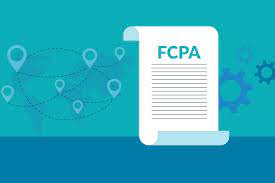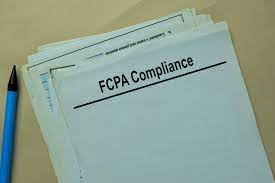Gartner Settles FCPA Case with SEC for $2.5 Million

The SEC has been racking up several FCPA enforcement actions. DOJ appears to be declining many of these cases. The division of enforcement appeared to follow a pattern – on larger cases with more pervasive violations, DOJ and the SEC would each bring an enforcement action; while on relatively “smaller” cases, the SEC would bring a case and the DOJ would decline to prosecute.
This pattern, however, was upset when DOJ declined to prosecute Philips for its FCPA violations in China. Even though Philips was a recidivist, it was unusual for DOJ to decline prosecution of Philips for its China bribery scheme. It is hard to understand, without knowing more of the surrounding facts and circumstances, why DOJ declined to prosecute Philips, a recidivist, after promoting its aggressive enforcement stance against FCPA recidivists.
Aside from this unusual pattern, the SEC announced yet another settlement with Gartner for $2.5 million. For 2023, this is the SEC’s fifth corporate settlement. DOJ has announced only one corporate settlement in the Ericsson DPA breach case.

Gartner’s consulting business pursued several contracts and projects with the South African Revenue Service (“SARS”). A manager of Gartner’s consulting authorized Gartner to enter into sub-contracts with a South African information technology consulting company (“Private Company”), knowing that the Private Company would pass on bribery payments to SARS officials.
To justify the engagement of the Private Company, the Gartner Consulting Manager falsely explained that Gartner needed to sub-contract with Private Company to meet requirements for South Africa’s Broad-Based Black Economic Empowerment legislation (“B-BBEE”). In fact, Gartner, though its existing sub-agents, already qualified under the B-BBEE.

Gartner operated in South Africa though is exclusive sales agent, Future Trends Ltd., and sub-agents IT Management Advisory Services Pty. Ltd (“ITMAS”) and Zimeleyeyo Research and Consulting (“Zimeleyo”). Private Company us a South African information technology consulting company. The Executive Director of the Private Company was a close friend of a SARS senior official.
In December 2014, the Private Company’s executive director advised Zimeleyo’s General Manager that SARS wanted to conduct an assessment of its information technology systems, and SARS was interested in meeting to discuss the project. The two executives prepared an initial scope of work for Phase I of the project. In January 2015, Zimeleyo provided SARS with Gartner’s proposal, which did not mention the Private Company or its executive director.
Subsequently, SARS requested that Gartner use the Private Company in the proposal in order to qualify for the contract under South Africa’s B-BBEE legislation. The Gartner Consulting Manager mistakenly (or intentionally) mislead Gartner management that they had to use the p[rivate Company to qualify for the potential project.
SARS signed a Master Consulting Services Agreement in February 2015 with a value of approximately $1 million. The contract contains no reference to the Private Company or the B-BBEE requirements. Zimeleyo directly engaged four individuals from the Private Company as consultants with the full knowledge and approval of Gartner’s procurement staff.
After completing the Phase I assessment, the SARS Commissioner suggested a follow-up project to implement the recommendations. Gartner estimated that the project would cost roughly $10 million.
The Gartner Consulting manager and the Zimeleyo General Manager put together the proposal (“Phase II”) Zimeleyo’s General Manager advised that the Private Company’s executive director was working with SARS officials “to set the expectations with them” regarding the pricing of the Phase II project.

The Gartner Consulting Manager never raised any concerns that SARS officials and the Private Company may be colluding in the contracting process. In July 2015, SARS executed the Phase II Master Consulting Services Agreement for approximately $10 million. The Gartner Consulting manager explained that the Private Company was a client-mandated partner to meet Black Empowerment Legislation. He further stated that the Private Company was to receive 40 percent of the contract.
The Phase II Consulting Contract required Gartner to meet B-BBEE qualifications and to submit a “verification Certificate.” Gartner, though its South African sub-agent, ITMAS, held such a certification. Gartner did not need the Private Company to meet such a requirement.
Gartner did not enter into a sub-contract with the Private Company; as in Phase I, Gartner engaged several individuals from the Private Company as consultants, notwithstanding the fact that the contract contained no reference to the Private Company or that 40 percent of the payments were to be made to the Private Company, in conformance with SARS’ instructions.
Gartner’s invoices omitted any reference to the Private Company. SARS officials advised Gartner to manage its subcontractor, the Private Company. Gartner’s invoices contained only a single line item for “Professional Fees.” Zimeleyo invoiced Gartner monthly through a single invoice containing two line entries with different hourly rates. Gartner made its payments to Zimeleyo, which in turn paid the Private Company. The Gartner Consulting Manager approved all the invoices.
Gartner earned ill-gotten net profits of $675,974 from the projects.















